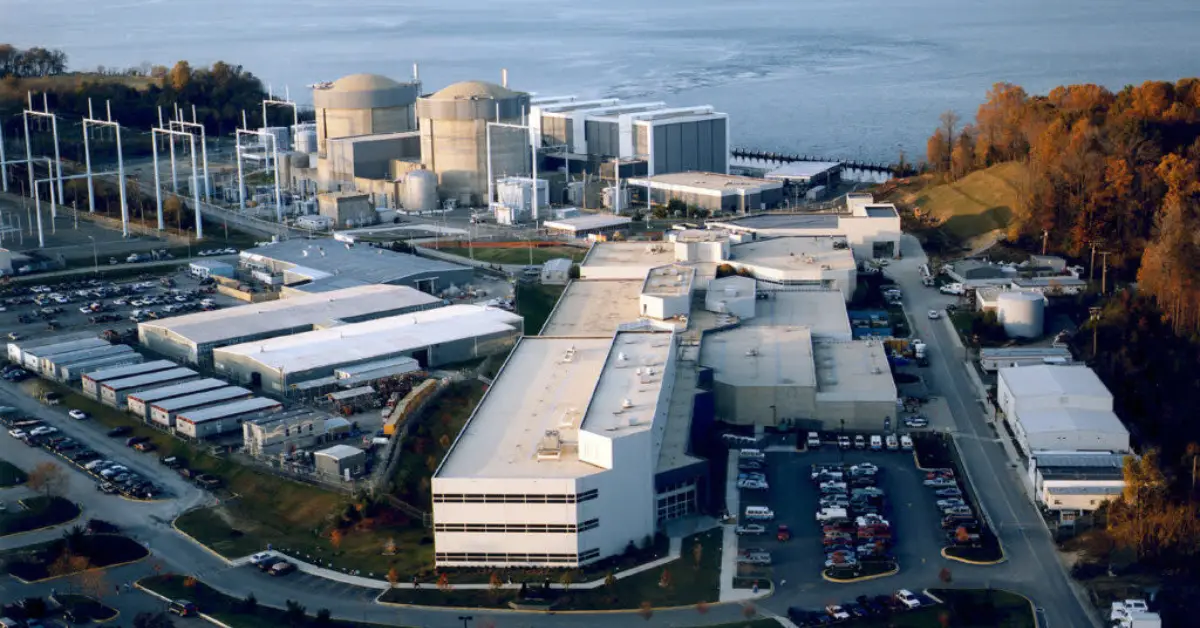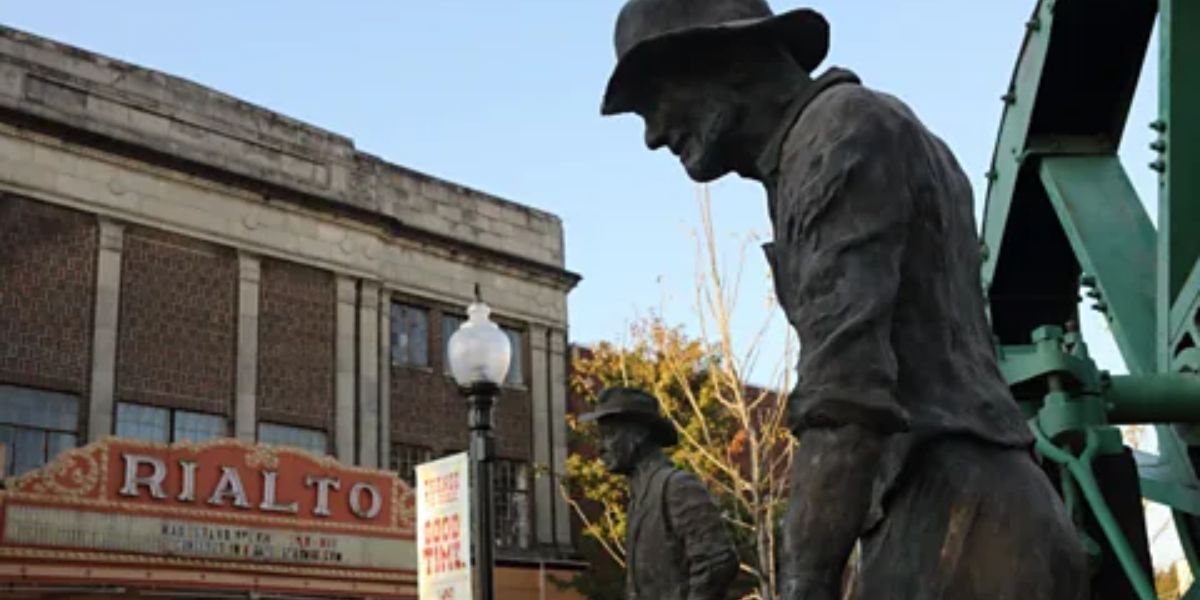The nuclear energy debate took centre stage at the Maryland General Assembly on Thursday as lawmakers grappled with the state’s growing energy needs, rising costs, and ambitious clean energy goals. The discussion featured a presentation from the Nuclear Energy Institute (NEI), as well as hearings on major energy-related bills that could shape the state’s energy future.
At the heart of the conversation was the role of nuclear power in Maryland’s energy mix. The Calvert Cliffs Nuclear Power Plant, located near Lusby, currently provides 40% of the state’s energy and 80% of its carbon-free electricity. Yet, nuclear energy has often been sidelined in policy discussions despite its significant contribution to the state’s power supply.
Maria Korsnick, CEO of NEI, addressed the House Economic Matters Committee to highlight the benefits of nuclear power. She emphasized its reliability and clean energy potential, urging lawmakers to consider it as a crucial part of Maryland’s energy future. While nuclear power has long been a steady force in the state’s energy landscape, new advancements, such as small modular reactors (SMRs), are being developed to offer more flexible and efficient solutions.
Maryland lawmakers are currently considering a package of bills aimed at increasing energy generation and lowering costs for consumers. One of these measures would grant nuclear energy “tier 1” status, making it eligible for clean energy subsidies.
However, House Economic Matters Chair C.T. Wilson (D-Charles) noted that while nuclear power offers promise, it is not a simple solution. He invited NEI to speak to the committee to provide a realistic perspective on the challenges and opportunities associated with nuclear energy.
The hearing on nuclear energy was part of a broader day of discussions on the state’s energy policies. The committee also reviewed legislation that seeks to roll back a controversial natural gas infrastructure program and debated a comprehensive bill aimed at promoting clean energy generation in Maryland. The debates underscored the complex and often competing interests at play in shaping the state’s energy future.
For many Maryland policymakers, nuclear energy is becoming an increasingly attractive option as other renewable sources, such as wind and solar, face challenges in meeting the state’s energy demands. Korsnick stressed that nuclear technology is evolving, with advancements that improve safety, efficiency, and affordability. She highlighted that while nuclear power was once met with scepticism, it is now being embraced by many communities as a viable and necessary energy source.
One of the key bills discussed during the session was the Abundant Affordable Clean Energy – Procurement and Development Act, introduced by Del. Lorig Charkoudian (D-Montgomery). The bill proposes several measures to support the state’s energy transition, including easing regulatory hurdles for relicensing the Calvert Cliffs plant. Although the federal government has the final say in licensing decisions, state-level support could streamline the process.
The proposed legislation also aims to enhance battery storage capacity in Maryland, allowing energy generated during off-peak hours to be stored and used when demand is higher. Additionally, it seeks to ensure that electricity generated from offshore wind projects in federal waters remains within the state and to allocate a greater share of energy tax revenues toward ratepayer relief.
Charkoudian acknowledged the complexity of her bill, emphasizing that ongoing adjustments and discussions are necessary to refine its provisions. Despite the challenges, most stakeholders who testified expressed general support for the legislation. However, Frederick Hoover, chair of the Maryland Public Service Commission, warned that siting new clean energy installations could become a contentious issue in the state.
While Charkoudian’s bill represents a significant step toward a cleaner energy future, it could be overshadowed by a broader legislative package on energy policy that is expected to dominate discussions in the coming weeks. Nonetheless, the hearing provided valuable insights into the state’s energy priorities and the diverse perspectives shaping the debate.
The committee also spent considerable time discussing proposed changes to Maryland’s natural gas infrastructure program. Del. Elizabeth Embry (D-Baltimore City) introduced a bill that would place new restrictions on the STRIDE program, which was implemented in 2013 to incentivize gas utilities to upgrade infrastructure. Critics argue that the program has led to unnecessary spending, driving up costs for consumers while providing little tangible benefit.
Under STRIDE, gas companies receive financial incentives to replace ageing pipelines and improve infrastructure, with costs passed on to consumers through rate surcharges. Embry’s bill aims to refocus the program on safety-related upgrades rather than broad infrastructure expansions. She described the proposal as a modest but necessary adjustment to protect consumers from rising utility bills.
Consumer advocates, such as David Lapp of the Maryland Office of People’s Counsel, voiced concerns about the financial burden STRIDE places on ratepayers. Lapp argued that utilities have taken advantage of the program to maximize profits while passing costs onto consumers. “Utilities generate higher profits by spending extra money with the government’s approval,” he stated.
Supporters of the bill believe it would enhance safety while reducing unnecessary expenditures, ultimately benefiting consumers. However, representatives from the gas industry pushed back against the proposed changes, arguing that the program is essential for maintaining safe and reliable gas infrastructure. Mark Case, a vice president at Baltimore Gas & Electric, warned that limiting STRIDE could slow down necessary pipeline replacements, potentially putting communities at risk.
Washington Gas also defended the program, bringing in Cynthia Quarterman, a former federal pipeline safety official, to testify in favour of STRIDE. Quarterman asserted that Maryland should continue its current approach to infrastructure upgrades to ensure long-term safety and reliability. She argued that delaying necessary improvements could leave the state vulnerable to future gas pipeline failures.
Meanwhile, Laurel Peltier, an advocate for low-income ratepayers, criticized the way the STRIDE program has been implemented. “Ratepayers have become ATMs, and gas utilities have their PINs,” she said, highlighting concerns about excessive charges being passed onto consumers.
The discussions on nuclear energy, clean energy legislation, and natural gas infrastructure highlighted the complexity of Maryland’s energy policy landscape. As lawmakers continue to navigate these issues, the debates are likely to shape the state’s approach to energy generation, sustainability, and consumer protection for years to come.
Disclaimer: This article has been meticulously fact-checked by our team to ensure accuracy and uphold transparency. We strive to deliver trustworthy and dependable content to our readers.




